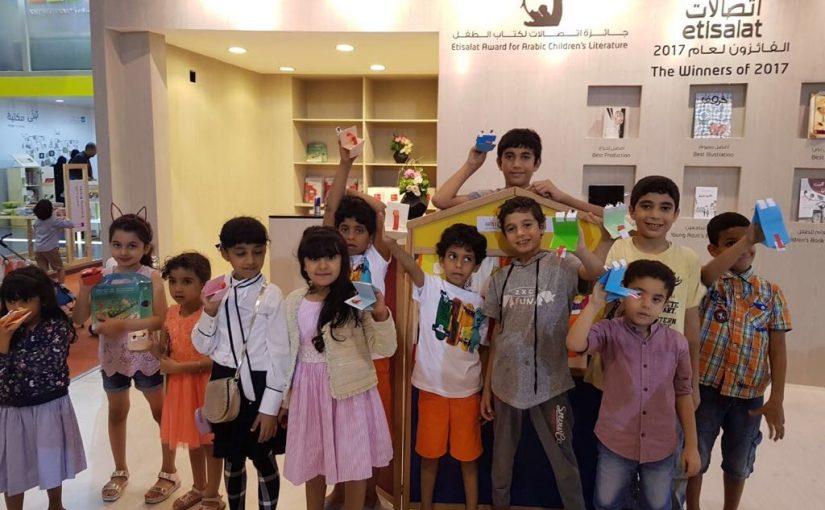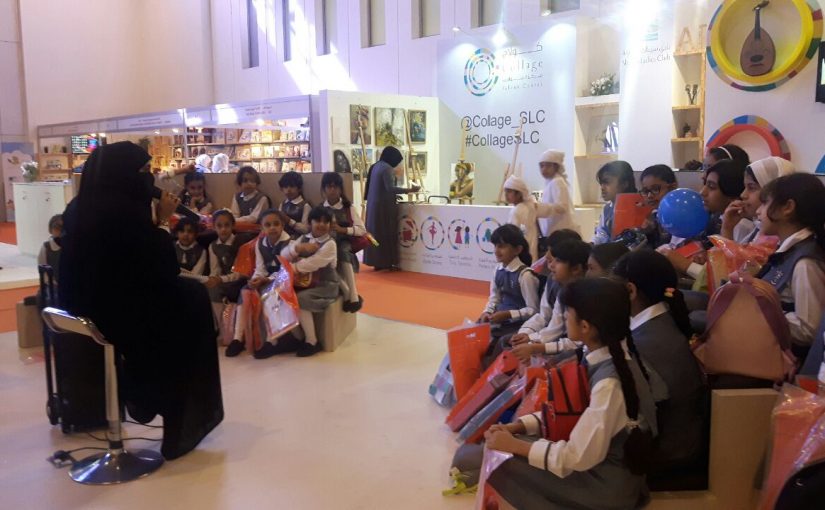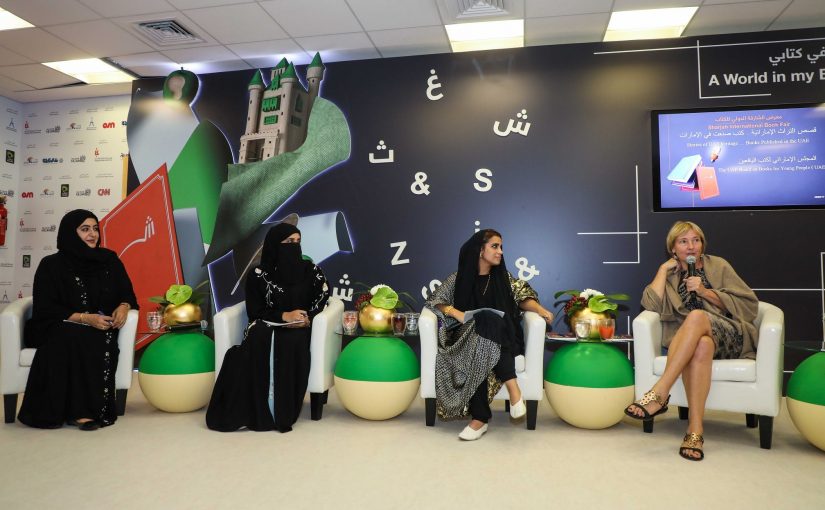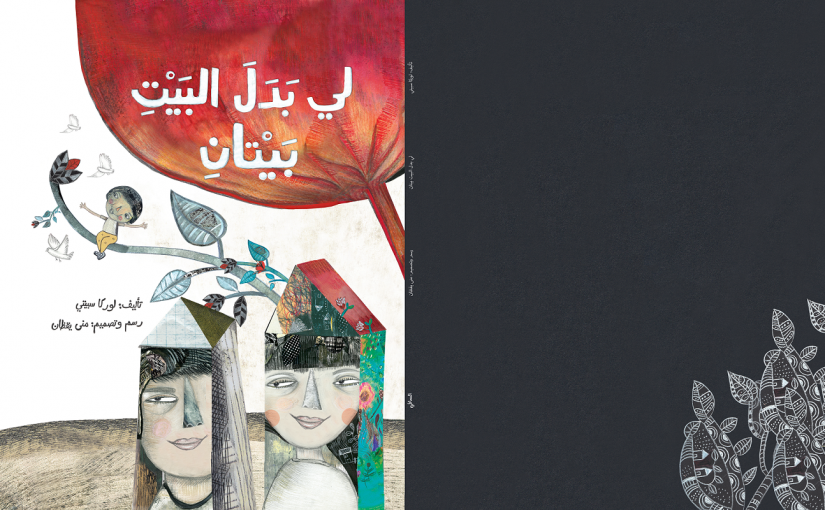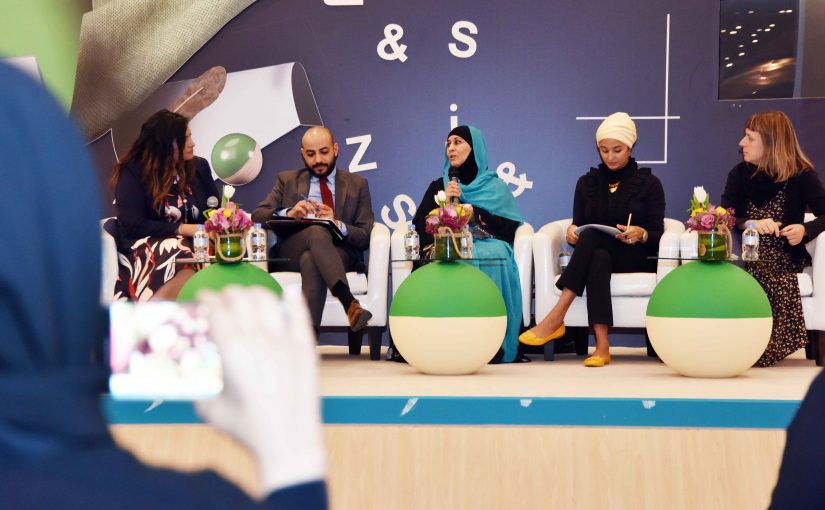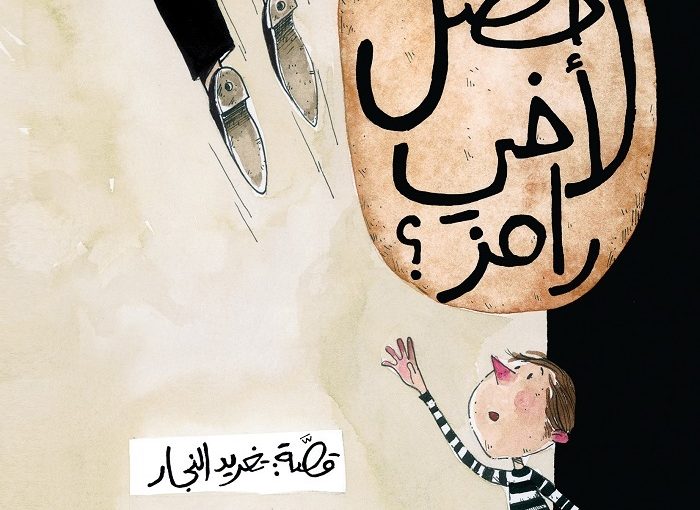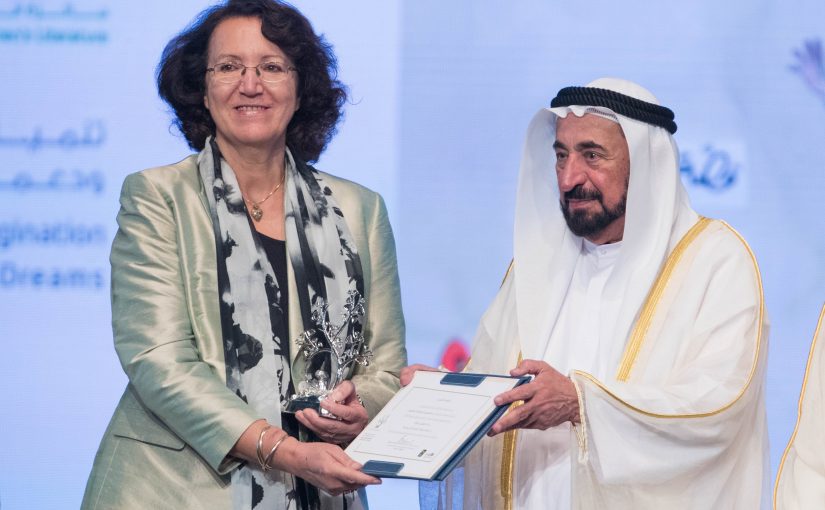The jury of the Etisalat Award for Arabic Children’s Literature, organised by the UAE Board on Books for Young People (UAEBBY) and sponsored by Etisalat Group, came together for a panel discussion at the Sharjah International Book Fair (SIBF 2017) to highlight the importance of such an award in supporting new developments in the field of Arabic children’s literature and elevating the standard of work produced for children and young adults over the past years.
Dr. Yasmine Motawy, Senior Instructor at the Department of Rhetoric and Composition at the American University in Cairo; Tamer Said, Director-General of Kalimat Group; Mertxe Paris, Founder and Editor-in-Chief of Mosaics Llibres publishing house; and Iraqi author and artist Intelaq Mohammed Ali, unanimously advocated for the need of the award to facilitate the popularity of books and authors, the promotion of reading, fostering a love of books in children, and honour the best regional talents in the field.
The jury commended the quality of entries at this year’s edition of the award, which reflected a high-level and nuanced engagement between authors and illustrators. Several titles deftly tackled issues of social importance within Arab communities, making them appropriate for the consumption of young readers. They also highlighted the potential that some entries have for translation, calling out on suitable publishers who could collaborate on these projects.
The panel discussion addressed key points on the mechanisms, regulations and disciplines carried out by the jury in the nomination and selection of the winners. It also put forth a number of new ideas, recommendations and initiatives that would support the jury.
A recommendation about involving children and school students in the evaluation process of the submitted titles in the upcoming editions, gauging the impact of the entries on them, and using that as a parameter to judge the quality of the literary product was also made.
Shedding light on why some of the titles were disqualified or could not make it to the final entries, the jury explained that some were adaptations and some others did not meet the requisite level of quality. The jury explained that the reasons for disqualifying such titles were the excessive use of informal vocabulary that made the texts ambiguous and the language ineffective, widening the gap between the illustrations and the main idea of the text. In some books, the illustrations did not support the text to bring out the main message.
The panel emphasised that it is crucial that authors deploy literary techniques to enrich their text and avoid rigidity, bring it closer to the readers’ interests and aspirations, and use an intellectual approach that exemplifies the reality of the written text in attractive ways.
This year, the award featured creative literary experiments from three Arab countries; the UAE, Jordan and Lebanon. ‘Two Homes Instead of One’ by Lorca Sbeity, illustrated by Mona Yakzan and published by Dar Al Saqi in Lebanon, won Children’s Book of the Year, worth AED 300,000, while ‘Cappuccino’ by Fatima Sharafeddine, which is published by Dar Al Saqi in Lebanon, won Young Adult Book of the Year, worth AED 200,000.
‘My Mother is a Gorilla and My Father is an Elephant’ by Dr Naseeba Al Ozaibi, illustrated by Abdulrazaque Al Salhany, published by Al Aalm Al Arabi publishing house in the UAE, won Best Text, worth AED 100,000; ‘Whatever Happened to My Brother Ramiz’ by Taghreed Najjar, illustrated by Maya Fidawi and published by Al Salwa Publishers in Jordan, won Best Production, worth AED 100,000; and ‘The Seventh Day’s Sheep’ by Amina Al Hashemi, illustrated by Maya Fidawi and published by Yanbow Al Kitab in Morocco, won Best Illustration, worth AED 100,000.
The UAE ranked first in the Digital Book App of the Year category, the award’s latest category worth AED 100,000, for the ‘Lamsa’ application, which is developed by the Lamsa company in the UAE, and targets the age group of 2-8 years.
The Etisalat Award is divided into six categories – ‘Children’s Book of the Year’ valued at AED 300,000, distributed equally between the author, illustrator and publisher; ‘Young Adult Book of the Year’ worth AED 200,000, distributed equally between the author and publisher. There are also four awards of AED 100,000 each for ‘Best Text’, ‘Best Illustration’, ‘Best Production’ and ‘Digital Book App of the Year’. AED 300,000 from the award is dedicated to organising workshops to help develop the talent of promising Arab writers, illustrators and publishers through the ‘Warsha’ programme.
The winners of the Etisalat Award for Arabic Children’s Literature’s ninth edition were honoured at the opening ceremony of the 36th Sharjah International Book Fair, which runs until 11 November 2017.
-Ends-
Attached photo during the panel discussion.
